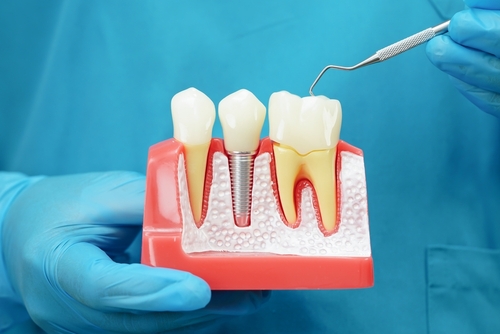Risk Factors for Gum Disease
Though anyone can be affected by gum disease, there are some factors that can put you at a greater risk of developing it. These include smoking, stress, medications that reduce saliva production, genetic susceptibility, and health conditions like diabetes, AIDs, and cancer.
Treatments
Our office can provide gum disease treatments and help your oral health to get back on track. Treatment for gum disease, especially in the early stages, is simple and can provide a way for you to return your oral health to a better condition.
Deep Cleanings
Deep cleanings are the most common treatment for periodontal disease. We can clean your teeth, focusing below the gum line in order to help your oral health recover.
Deep cleanings are often called scaling and root planing because there are two significant portions of treatment. Scaling involves cleaning away excess plaque to get rid of the current bacterial infection.
Root planing is the second part and during this stage, we’ll smooth the surfaces of your roots. A smooth root surface makes bacteria less likely to attach to the roots and provides a way for your teeth to heal.

